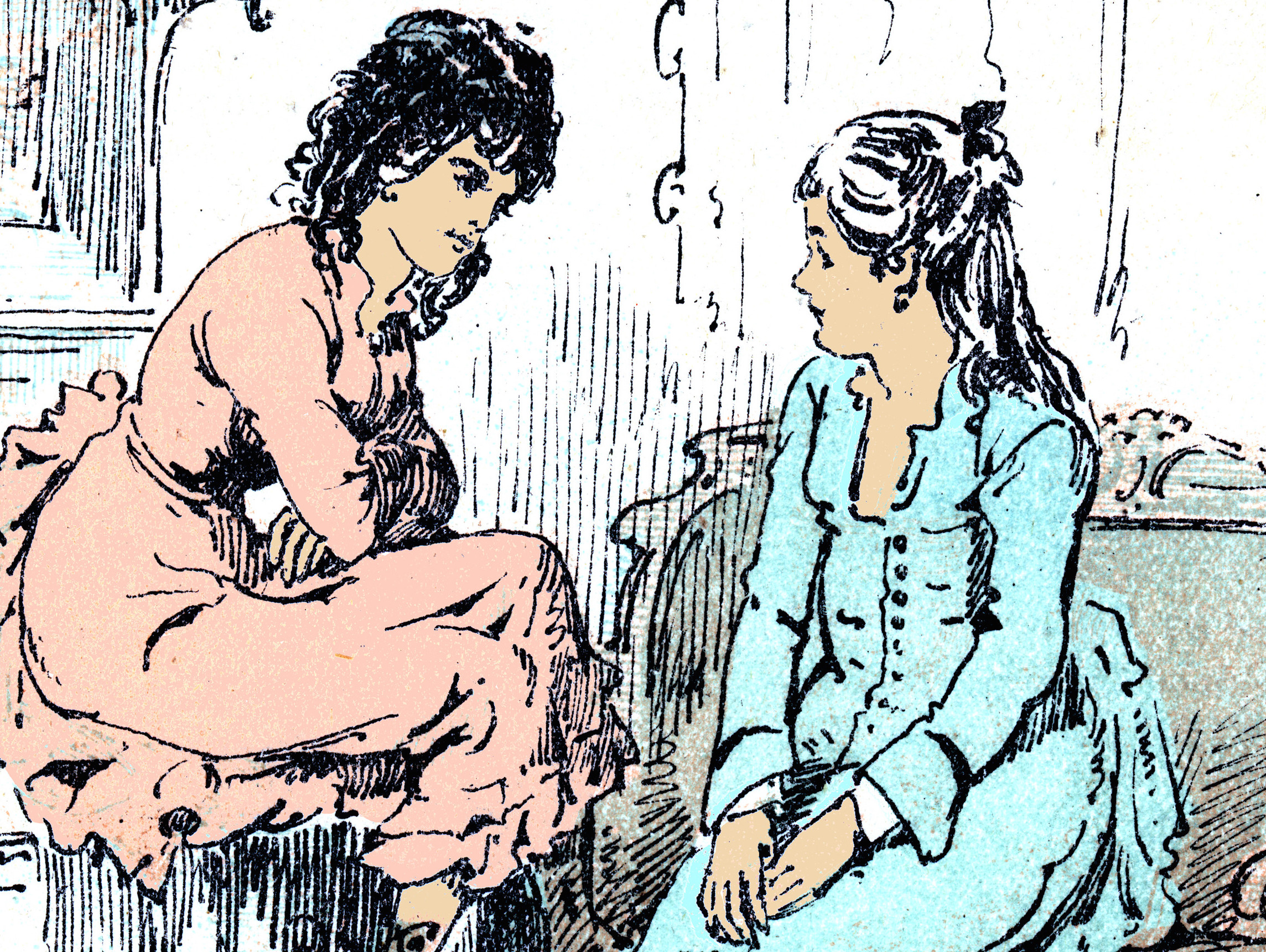【Watch Nice Sister】
Growing Pains
Our Daily Correspondent

From Punch, 1877.
“Do you realize,” my friend Susannah said to me, “that we’re getting too old to be precocious?” This was at the start of the sixth grade. Susannah was, in fact, very precocious: politically minded, she had styled herself as an outspoken feminist, organizing an abortive boycott of a substitute gym teacher’s sexist softball practices. “I know,” she said sympathetically when she saw my face. “That’s how I felt, too—I almost cried. It’s a tragedy.”
This was dramatic, but Susannah wasn’t wrong. In some ways, the sands of time were running out, and our glory days were behind us. Soon, behaviors we’d once been rewarded for would be recognized as obnoxious, or precious, or odd. We’d have to hide them rather than flaunt them. What had been advanced was now arrested. Students at this point were honored for work and accomplishment rather than for quirks of early development.
It was Margaret Fuller who wrote that “for precocity some great price is always demanded sooner or later in life.” Fuller, of course, knew from precocity, to say nothing of feminism. She was reading by three and translating Virgil at five. Okay, she was actually more of a prodigy. But if her precocity was of the genius sort, she was right that garden-variety youthful precocity—as distinct from early success—is a particularly tricky sort of growing pain.
Not many people are prodigies; many are precocious. It requires nothing more than normal smarts, a little indulgence, a little exposure, a little encouragement. It’s the easy rewards that are so hard to lose, of course. But maybe aping adulthood is only appealing when it does not infringe on real adulthood. When one is on the cusp of it, things can become grotesque, or threatening. For every child star flickering out before our eyes there are a million moderately clever kids turning into dull, functional grown-ups. I am struck often by what nicepeople all my precocious schoolmates have become. It’s anticlimactic—but that’s probably the opposite of tragedy.
Sadie Stein is contributing editor of The Paris Review, and the Daily’s correspondent.
Search
Categories
Latest Posts
Cut the Music
2025-06-26 01:48Xiaomi’s Q3 net profit surges by 182.9% y
2025-06-26 01:19How to set up Siri on your iPhone
2025-06-25 23:35The Swamp Thickens
2025-06-25 23:31Popular Posts
Antifascism and the Left’s Fear of Power
2025-06-26 00:448 reasons 'Evil' is the best show you're not watching
2025-06-26 00:40Our Refugees
2025-06-26 00:19Popular Articles
The “Classical Liberal” Pivot
2025-06-26 02:02China to make more roads accessible to highly
2025-06-26 01:47How to download Google Maps
2025-06-26 01:34No Re-Turning Point, U.S.A.
2025-06-26 00:34Newsletter
Subscribe to our newsletter for the latest updates.
Comments (237)
Pursuit Information Network
Laboring Academia
2025-06-26 01:33Opportunity Information Network
ByteDance’s revenue in Q2 surpassed Tencent, narrowed gap to Alibaba and Meta · TechNode
2025-06-26 01:22Co-creation Information Network
Tencent achieves “high
2025-06-25 23:43Pursuit Information Network
Double 11 shopping festival shows lower
2025-06-25 23:43Reality Information Network
Twilight of the Racist Uncles
2025-06-25 23:35